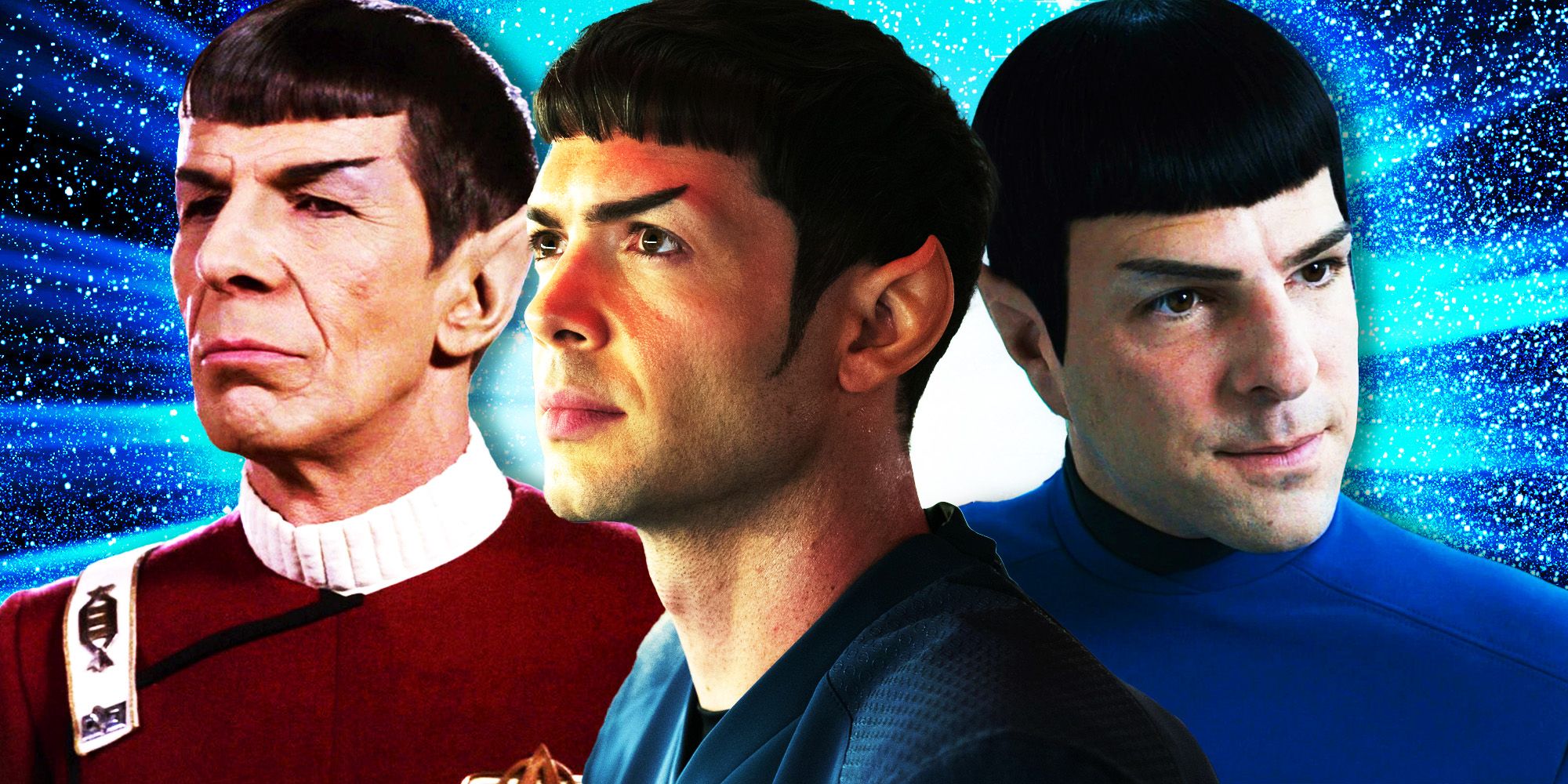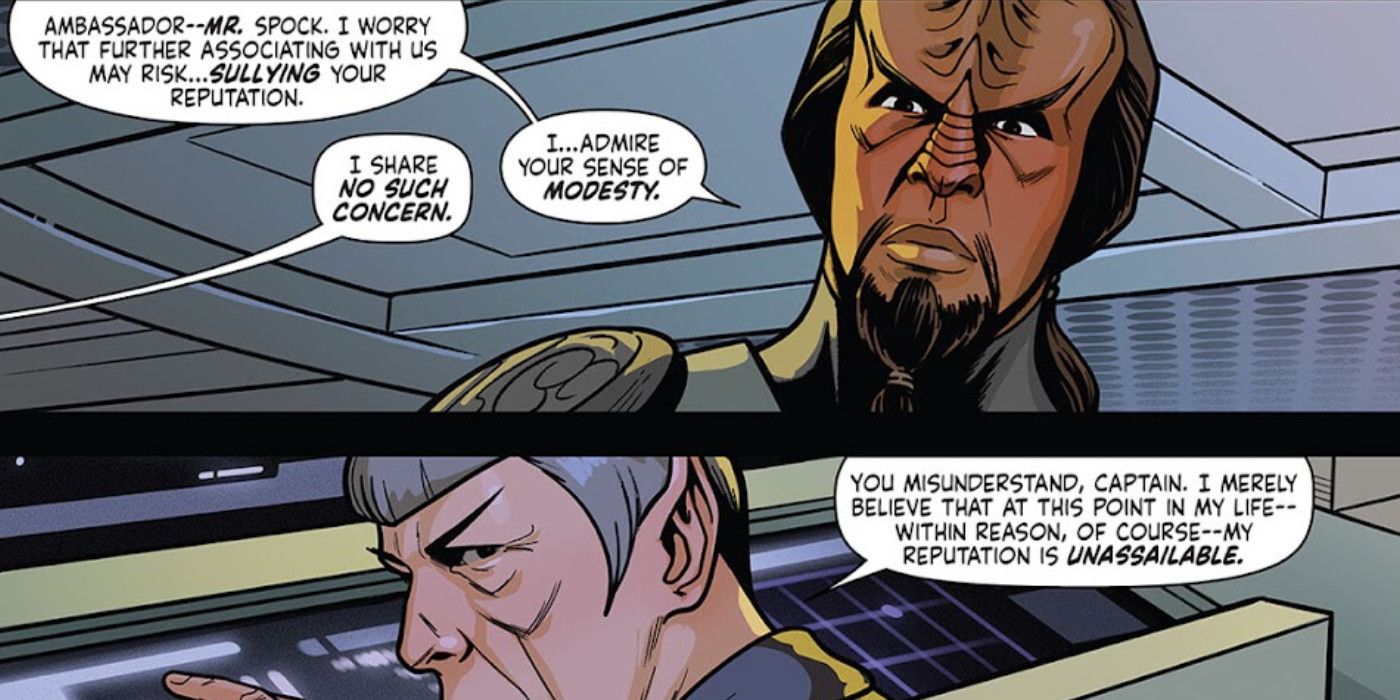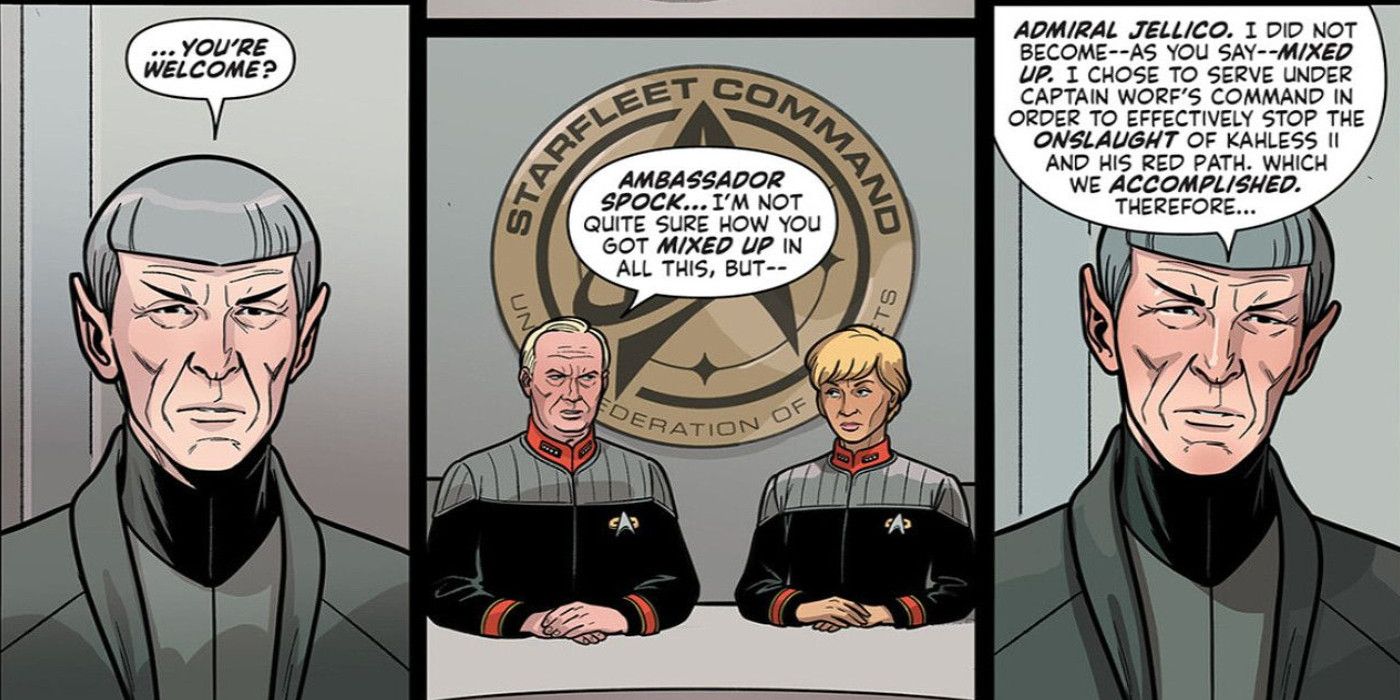In recent years, Spock has displayed something of a rebellious streak and in Star Trek: Defiant #8, the Vulcan puts his behavior in context.

Summary
- Spock’s decision to join Worf’s rebel crew is explained in Star Trek: Defiant #8, as he sees it as an opportunity to study the Borg and their astronomical knowledge.
- Spock’s reputation as a hero and his many accomplishments make it difficult for anyone to say “no” to him, allowing him to backtalk admirals and command respect within Starfleet.
- Spock’s rebellious streak is influenced by the maverick behavior of his previous commanding officers, Captains Pike and Kirk, who taught him the importance of going against the grain for the greater good.
Warning: contains spoilers for Star Trek: Defiant #8!
Spock has finally explained why he became more of a rebel after leaving the Enterprise. Beginning as a science officer, Spock rose through the Starfleet ranks, ultimately becoming a captain before leaving to follow in his father’s footsteps. Recently, with the god war raging across the galaxy, Spock threw in with Worf’s rebel crew, and in Star Trek: Defiant #8, he puts this newfound rebellious streak in context.
Star Trek: Defiant #8 is written by Christopher Cantwell and drawn by Mike Feehan. Starfleet has discharged and disavowed Worf and the crew of the Defiant, and Spock soon takes his leave of them. Later, as the Defiant sets out to find the renegade Borg known as Hugh, Spock returns, requesting a posting as science officer. Worf asks why Spock is returning, and the Vulcan explains Hugh represents a golden opportunity to study both the Borg and their vast astronomical knowledge. When Worf reminds him they are all outlaws, and it could hurt him, Spock replies that his reputation, by this point in his life, is “unassailable,” within reason.
Spock is a Hero to the Entire Federation

Spock has good reason to think this, as his career both before and after Starfleet have been exemplary. Serving on the Enterprise under Captains Pike and Kirk, Spock helped save the ship numerous times, and is rightly regarded as a hero. After Kirk’s five-year mission ended, Spock returned to Vulcan but learned his heart was in Starfleet. He would serve again under Kirk, even after his death and resurrection. After teaching at Starfleet Academy, Spock entered the diplomatic corps, and began working for Vulcan and Romulan reunification. Spock’s career has been spotless, making his decision to rejoin Worf a curious one.
No One is Going to Say “No” to Mister Spock

Yet as Spock pointed out, by this point in his life and in light of his many accomplishments, his reputation cannot be tarnished. Spock is a Starfleet icon and is treated as such: in this issue, he back talks two admirals and forces Starfleet to brief him on Worf’s mission. Spock has helped save the galaxy too many times for anyone to really say “no” to him. Fortunately, this is not a privilege Spock abuses, and he instead weaponizes it for good. Spock’s expertise will no doubt come in handy on the Defiant’s future missions.
Spock also learned a thing or two about rebellion from some of his previous commanding officers. Before returning to the Defiant, Spock visits the graves of Captains Pike and Kirk. Both captains had reputations as mavericks who sometimes went against the grain in the service of the greater good, and this no doubt influenced Spock’s later behavior. From them, Spock learned that blind adherence to rules and regulations is not always the way to get matters accomplished, he made good on these lessons for the rest of his career and into the god war. Spock’s explanation for his rebellious streak is sound, and fittingly rooted in logic.





